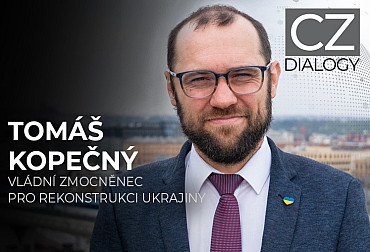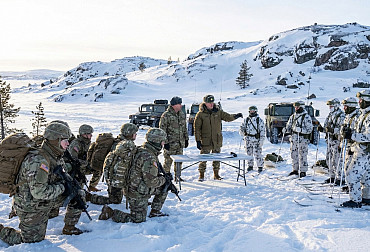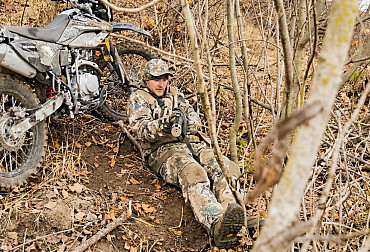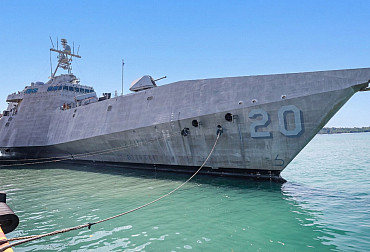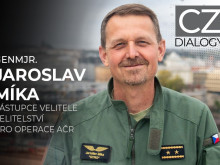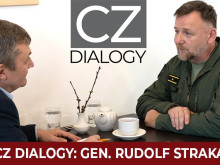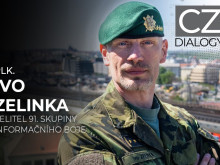Gen. Petr Svoboda: We need to stop criticizing each other and start talking more across generations
His work in an international environment, his experience commanding a brigade, and his personal view of the current state of the Czech Army are described in the next episode of our discussion program CZ DIALOGUES featuring Brigadier General Petr Svoboda, who until recently served as deputy commander and chief of staff of the JFTC (Joint Force Training Centre) in Bydgoszcz, Poland, and now serves as an advisor to the Chief of the General Staff of the Czech Armed Forces.
Video: Interview with Brigadier General Petr Svoboda, advisor to the Chief of the General Staff of the Czech Armed Forces / CZ DEFENCE
At the beginning of the interview, we asked General Svoboda how he would assess his work at the JFTC. "It was a tremendous experience and excellent work with an international staff. People were willing, it was just a matter of opening up their minds." According to him, the training center has undergone significant overall changes. "The headquarters changed its activities—from mentoring people going on missions to preparing NATO forces according to general plans. Today, the JFTC is more visible than before and, importantly, it fulfills its purpose," says Svoboda.
"Poles often say that Bydgoszcz is NATO's center in Poland, but in reality, the center is primarily responsible for preparing exercises according to regional plans for NATO corps," says General Svoboda, explaining the role of the JFTC. In addition to close alliance cooperation, cooperation with Ukrainians has also been added in the last two years. "An evaluation and training center for NATO-Ukraine cooperation was established at the JFTC, which we helped to create, and the JFTC is responsible for some of the processes that must be secured there," explains the general.
According to him, Czech soldiers will definitely not get lost in an international environment: "In terms of preparedness, training, or mental attitude, I would definitely not condemn the Czech army. We are one of the driving forces, and the Alliance is aware that we can identify problems clearly and constructively—and that is a gift," General Svoboda emphasizes Czech soldiers.
During his career, General Svoboda also devoted himself to modernization processes and the introduction of new technology, especially in the 7th Mechanized Brigade, which he commanded. According to him, the introduction of the CV90 tracked vehicles and Leopard 2 tanks represents a major step forward. "It's a step forward, but a very slow one. Three brigade commanders have already come and gone, and only the fourth will perhaps get his hands on the new vehicle," says the general, adding that every soldier wants the most modern equipment he can get because it will help him survive longer on the battlefield.
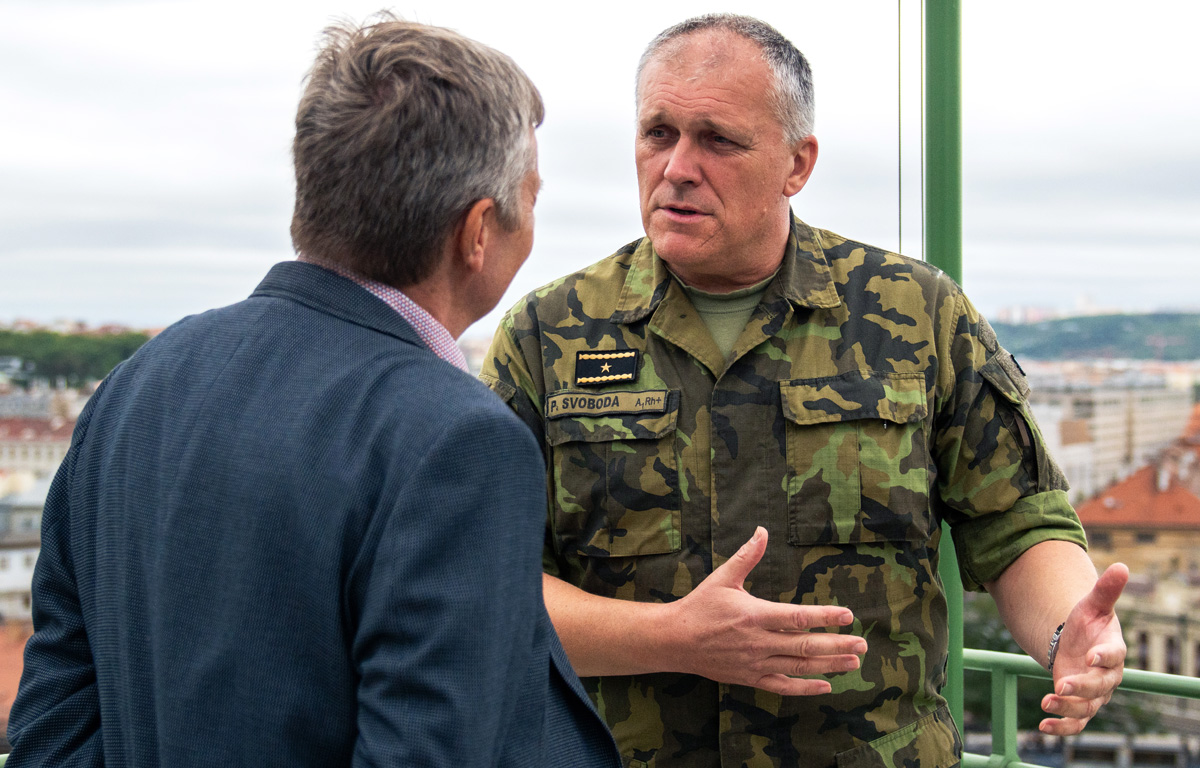
"We should not judge modern technology solely through the prism of finance, but according to whether it helps soldiers defeat the enemy," says Svoboda, who also calls for speeding up the acquisition process and more open communication between the army, the Ministry of Defense, and industry: "We must not be afraid to sit down together. Every country has experimental projects that it must test before implementing them. We see this in Poland, Ukraine, and the US. We must do the same."
"The Czech army is good, it has excellent people. We still have the ability to improvise, but if the acquisition process is not accelerated, we will end up worse and worse off. Every commander is interested in whether he has enough equipment, people, supplies, and ammunition—not whether we have two or two and a half percent of GDP," the brigadier general points out, adding that not only the army has changed, but also the people who join it. "We used to get 'ready-made people'—physically fit, prepared. Today, soldiers come from a society that has changed. There are no longer any military associations or military training in schools. We have to train soldiers from scratch," explains Svoboda. That is why, according to him, mentoring and leadership based on communication are key. "A commander must be able to explain why he is giving an order. When a soldier understands this, he will carry it out with greater motivation. This is not a weakness, it is a modern approach. In the army, decisions must be made, but if you can incorporate the smart ideas of your people, you will win them over to your side," explains the general, adding: "The army is part of society. We don't get a ready-made soldier from society, but a person whom we must lead, shape, and teach to cooperate."
In the interview, General Svoboda also emphasizes a fundamental principle that must be upheld—the army must remain apolitical. "Every soldier swears allegiance to the state and society, not to a T-shirt. Political changes should not extend down to the army. Our role is to defend the territory and inhabitants of this state from external attack," the general points out, adding that the oath is a tremendous commitment for a soldier. "Everyone who has taken the oath knows that it is not just a job, but a life mission."
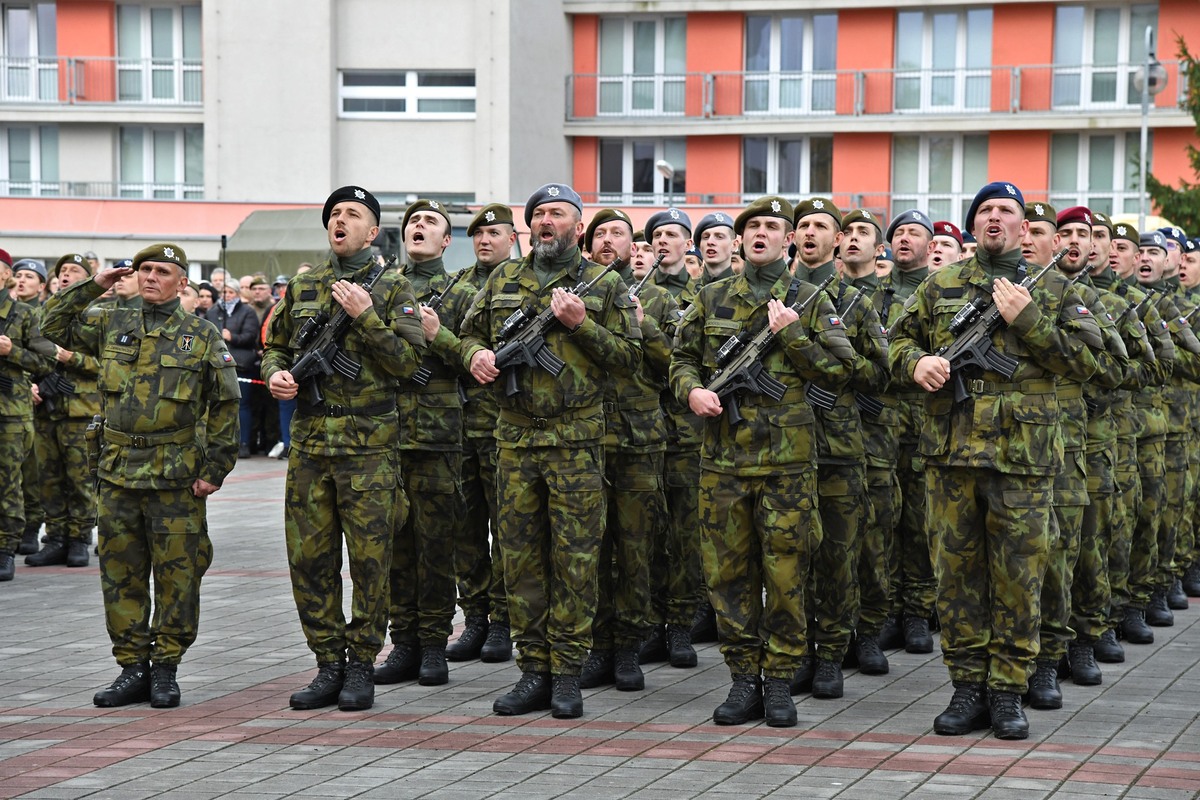
Regarding generational differences in the army, General Svoboda says: "We must stop badmouthing each other and start talking more across generations. Every generation has its own strengths. In NATO, there is a greater willingness to listen, debate, and make decisions. And that is the way forward for us too – the ability to lead smart people and not be afraid of them. That is the basis of modern leadership."
If you want to learn more, listen to the entire interview at the beginning of this article.











